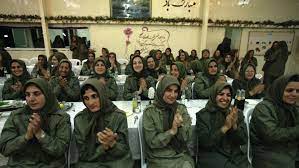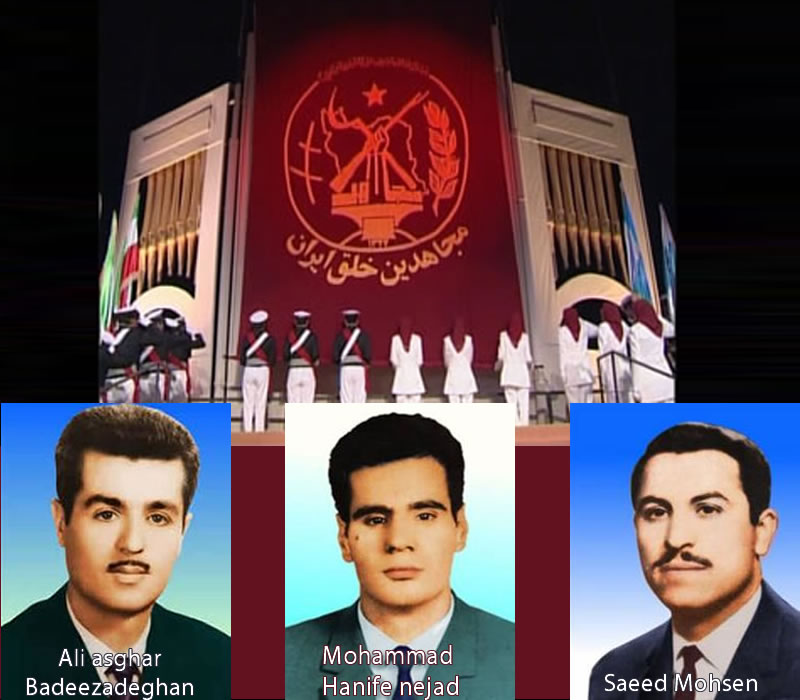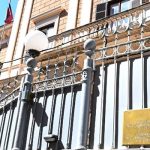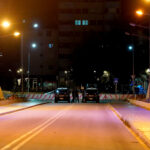“Iran’s use of attack drones and ballistic missiles to strike the MEK headquarters in Albania faces no legal prohibition, and Tehran’s authorities must put military action on the agenda, after issuing the necessary warning to the Albanian Government”.
This was the statement given by the Iranian State news agency “Fars”, close to the Iranian Revolutionary Guard and reported by “Reuters” on the morning of July 28.
The director of Anti-Terror in Albania, Alban Dautaj, said that this news is being verified.
He emphasized that, “it cannot be said whether the warning is true, but that his Directorate has been dealing with such notifications for some time”.
This attack warning comes just days after the Mojahedin e- Khalq (MEK) organization, based in Manëz, Durrës, announced the postponement of its annual summit.
The summit planned to be held on July 23 and 24 at the “Ashraf 3” camp in Manëz was postponed until further notice.
According to the announcement given by the Mojahedin themselves, the decision came after the recommendations of the Albanian Government and because of terrorist threats.
Also, no more than a week ago, the American Embassy in Albania would have warned that it was aware of an attack that could unfold in this camp during the summit.
The Embassy in its announcement called on American citizens not to participate in this event, which attracts many American political figures.
This year it was the former vice president of the United States of America, Mike Pence, who held a meeting with the leaders at the camp.
Pence became the second high American official in a short time, who visits Albania, for this reason, after Mike Pompeo, who came to Tirana in May of this year.
But this warning from the Islamic Republic of Iran (IRI) did not originate today. After the expulsion of Iranian diplomats over the years immediately after the assassination of the Iranian general Kassem Suleimani, the supreme Iranian leader Khamenei would come out with a statement about Albania:
“There is a small country, but a European devil, in which Americans and anti-Iranian traitors joined together to plot against the Islamic Republic.” This treatment is reserved only for the USA and Israel.
Even the cyber-attack that happened a few days ago against the Albanian governmental Institutions is suspected to have come from groups under the Iranian Islamic Republic (IRI) umbrella.
They attacked the main State websites writing that the “Albanian Government” is harbouring those whom Iran calls “terrorists”.
Although, the identification of the author of the cyber-attack has not yet been officially recognized by the Albanian authorities.
Intensification of the war
Despite the fact that the “war” between Iran and the MEK has been ongoing, the question arises as to why exactly now we see its intensification.
The Iranian government, on one hand, says that it is taking this so-called military action to fight terrorism.
Ahmad Rafat, the Iranian journalist who lives in London and writes for “Kayhan Life”, explained the importance of this warning.
“Years ago, the Pasdarans, so the Revolutionary Guard, attacked Kurdish bases in Iraqi Kurdistan, either with drones or with missiles, causing dozens of victims and justifying the attack with Article 51 of the UN. Often in these cases the attack was preceded by a request to the Iranian Government for military intervention by the Pasdarans”.
Of course, there is a difference when it comes to Iraq, which is a bordering neighbouring country and is not a member of NATO, and another country like Albania.
But even though it is a NATO country, the issue of MEK’s presence in Albania was discussed three days ago also in the Iranian Parliament. Mohammad Hassan Asferi, parliamentarian of the city of Araki, has stated that the fact that Albania welcomes the MEK in its territory goes against international jurisprudence.
If we see these two episodes connected: the intervention in the Parliament and the “FARS” article, both seeking to find a legal justification, it is clearly understood that the issue is very serious. That’s why the cancellation of the summit by the MEK, a very important summit for them, and DASH’s request for non-participation in this event of American citizens.
Anyway, Rafat says that the Revolutionary Guard, if it were to attack, would most likely do it with drones and not rockets. Although he believes that we are dealing more with a warning or a threat.
“The drone industry in Iran is very advanced. Iranian drones are what Russia is looking to buy for the war in Ukraine. It is precisely the Iranian drones that are a concern for the Gulf countries, which was clearly expressed to the American President, Biden in his last visit to the region”, he says.
But again the question arises why exactly an attack now?
For the Iranian journalist, a change in the course of history has been brought about by the MEK’s long-awaited sentence for Hamid Noury in Sweden.
On July 14, Hamid Noury, a former Iranian official, was sentenced to life in prison by a Swedish court for war crimes related to the mass executions of political prisoners in Iran in 1988. For sure this sentence has created a very big image damage to Iran.
And after this decision, IRI absolutely sees the influence of the Mojahedin.
“Members of the Swedish court were in Tirana for a week to listen to seven members of the Mojahedin who were in prison in 1988, when Noury was working there. The ‘death committee’, as it was called since then, decided which members of the MEK or the Iranian left should be sentenced to death,” explains Rafat.
He points out that those who were sent to death had not received such sentences, but were serving years of prison sentences at the time they were taken to be hanged.
“It was done through an order from the supreme leader at the time, Khomeini, to empty the prisons. Four people were appointed to the Committee, who after 3-4 questions decided who went on the rope and who didn’t. One of the committee members was Ebrahim Raisi, the current president of IRI. Therefore, the sentence imposed on Noury has created a very big image damage for the Islamic Republic”.
The journalist says that the ideal country where Iran can react against the MEK remains Albania. This is because in France they failed.
“Albania is supposed to be not such a strong country in counter-reaction. NATO hardly reacts even though the country is a member of it”.
MEK has not been considered a terrorist organization for years, but something new happened two weeks ago. The Mojahedin after so many years claimed responsibility for a molotov bomb attack in Tehran against a military base of the Basiji (part of Pasdaran that operates inside Iran), a base of high importance.
“So to say terrorist is difficult, but it is a group with international influence. Among the Iranian opposition groups outside Iran, it is the better organized, the better distributed and the more influential,” says Rafat. Consequently, it poses a danger to the Iranian government.
What does MEK represent?
If you need to know what the MEK represents as an organization, you should be careful who you ask.
Some may tell you that they are substitutes for the Iranian Government, who are in exile, and others will tell you that they are a terrorist cult.
The Iranian People’s Mojahedin Organization was established in Iran in 1965 by a group of radical students who combined Marxism and Islam.
The founders are three students: Mohammad Hanifnejad, Said Mohsen and Ali Asghar Badizadegan. Massoud Rajavi became the leader of the movement years later and would remain so until 2003, the year when he disappears, leaving behind the mystery.
MEK members were among the first to wage armed war against the Shah and the many Americans present at the time in the country. They widely supported the attack on the US embassy in Tehran in 1979 and strongly opposed the decision to release the hostages in 1981.
Between 1980 and 1981, immediately after the revolution, they attracted considerable public support and emerged as opposition to the new theocratic regime.
In 1981 Iran experienced a political season of real terror, marked both by the purges of the fledgling regime and by the targeted attacks and assassinations of Iran by the Mojahedin.
That same year, a MEK attack wipes out the leaders of the Islamic Republic: 70 officers were killed, including then-Iranian President Mohammad-Ali Rajai and Prime Minister Mohammad-Javad Bahonar.
The current Supreme Leader, Ali Khamenei, would be seriously injured in that assassination attempt and lose the use of his right arm.
In 1986, President Mitterrand’s France expels Rajavi and the MEK, who then take refuge in Saddam Hussein’s Iraq.
From there, the Mojahedin would take part in the Iran-Iraq War (1981-1988) on the side of Saddam Hussein. This will be one of the strongest reasons for the Iranian population’s loss of sympathy for the group.
They helped the Iraqi regime identify Iranian targets to strike and also by organizing actual attacks across the border.
The MEK remained in Iraq as guests of Saddam, who provided them with money, weapons and military equipment until 2003.
This year coincides with the fall of the regime.
It was precisely in 2003 that the debate about the Mojahedin was rekindled in Washington.
After the regime change in Baghdad, many lawmakers in the Bush administration were calling for the same treatment for the regimes in Tehran and Damascus.
On the political level, there was growing talk of removing the MEK from the US list of terrorist organizations, where they had been placed in 1997 by then Secretary of State Madeleine Albright.
A goal, that of being removed from the list of terrorist organizations, which the MEK managed to achieve only in 2012 after an intense lobbying effort by Maryam Rajavi, the wife of Masoud Rajavi.
Born with a Marxist-Islamist ideology, the MEK remains in fact a sect even though today it publicly declares that it agrees with the values of secularism and democracy.
Their aim, after the overthrow of the Iranian regime, is to establish an interim government headed by Maryam Rajavi, followed by free elections.
But regarding their influence or perspective inside Iran, Rafat says “That the Mujahideen do not have followers and do not have significant influence inside the country, it is a fact. The first because they declare themselves Islamic and the Iranians would never want to replace a theocratic regime with Islamists of another kind and, second because in the Iran-Iraq war they joined the Iraqis”.
It should also be noted that MEK’s modus operandi remains deeply authoritarian: members of the group have no access to newspapers, radio or television, no one can criticize Rajavi. Celibacy is also compulsory.
Organizations such as Human Rights Watch have extensively documented human rights abuses within the group.
Will Albania continue to be at the center of the turmoil?
Undoubtedly, the arrival and stabilization of MEK’s position in Albania could not be without consequences. The experience of European countries in contact with the group shows that the consequences can come in different ways.
The methodology of the Mojahedin in the country from which they operate is not only the organization of their activity against Iran. But in general, their approach to MPs, media and opinion leaders, or civil society is part of the strategy they follow to have a role and influence in the political and social debate in Albania.
Being MEK the best organized opposition group and with the most influence outside the borders of Iran, undoubtedly the attacks in various forms by the IRI will be continuous and unrelenting.
“The Islamic Republic is often in difficulty at the international level, as today with the Noury process in Sweden, which is not only the conviction of a former official in prison who killed the opposition, but also highlights the figure of the current President as murderers, or with the blocking of negotiations for the nuclear agreement, or under the pressure of Western sanctions, reacts”, says Rafat.
“Even now, on the one hand, Iran is reacting by putting itself at the service of Russia and Putin, and on the other hand, it is reacting with terrorist and military attacks against those it considers enemies, just as it attacked the Kurdish base in Iraq a few weeks ago or as it is threatening Albania at this moment”.
Post Author
Author
-
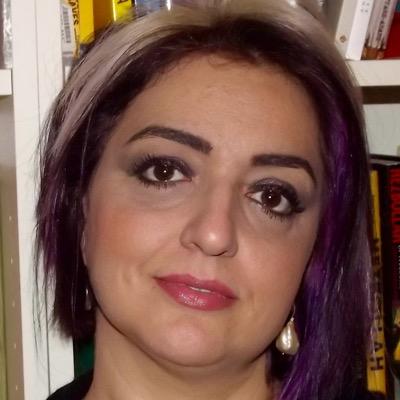
Researcher on International Relations Middle East and Balkans
View all posts
CSSII- Centro Interdipartimentale di Studi Strategici, Internazionali e Imprenditoriali,
Università di Firenze, Italy, Albania


